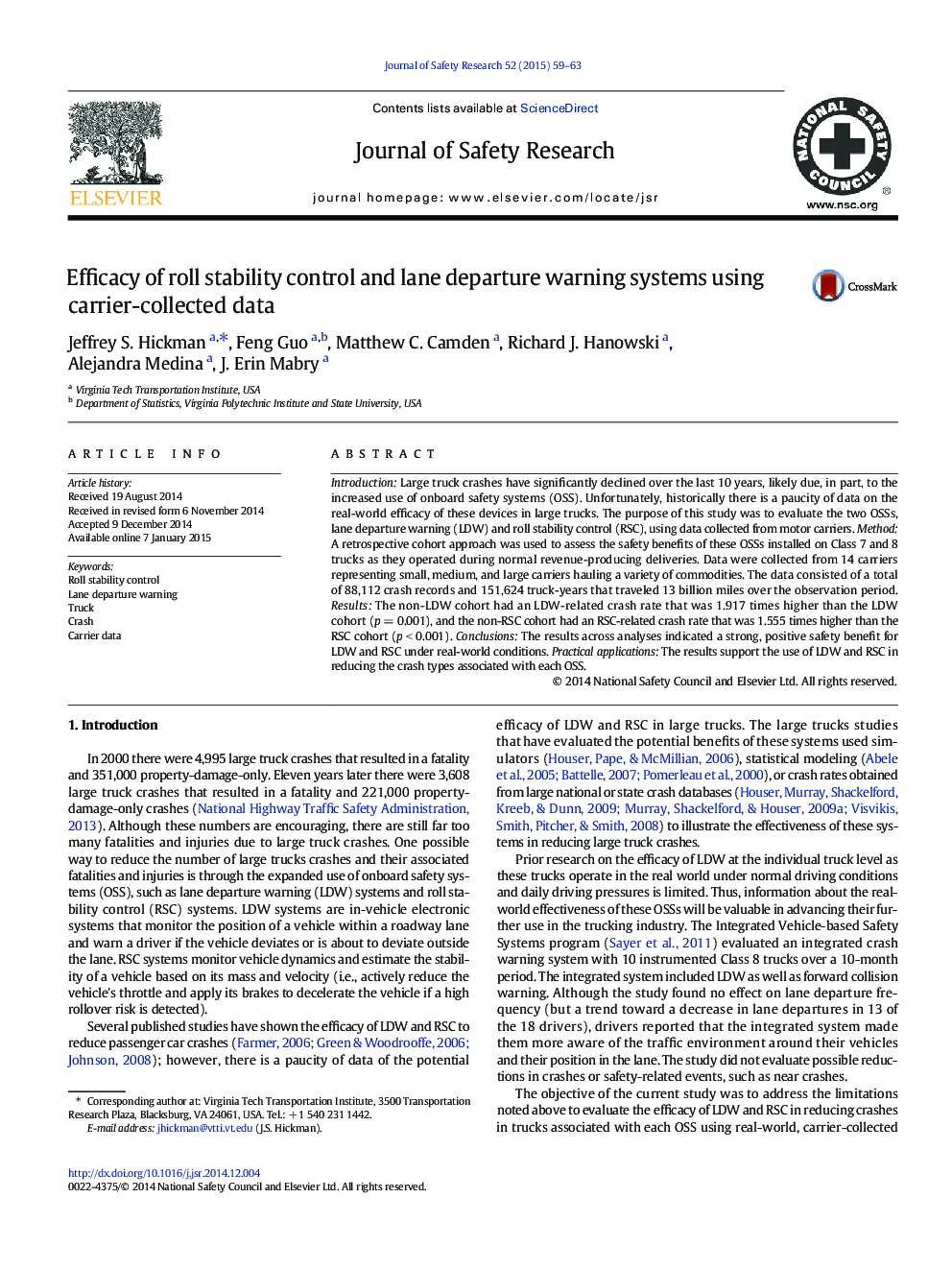| Article ID | Journal | Published Year | Pages | File Type |
|---|---|---|---|---|
| 587363 | Journal of Safety Research | 2015 | 5 Pages |
•The current study assessed the efficacy LDW and RSC using data collected directly from motor carriers.•Lane departure warning (LDW) significantly reduced a LDW-related crashes by 1.917 times.•Roll stability control (RSC) significantly reduced a RSC-related crashes by 1.555 times.
IntroductionLarge truck crashes have significantly declined over the last 10 years, likely due, in part, to the increased use of onboard safety systems (OSS). Unfortunately, historically there is a paucity of data on the real-world efficacy of these devices in large trucks. The purpose of this study was to evaluate the two OSSs, lane departure warning (LDW) and roll stability control (RSC), using data collected from motor carriers.MethodA retrospective cohort approach was used to assess the safety benefits of these OSSs installed on Class 7 and 8 trucks as they operated during normal revenue-producing deliveries. Data were collected from 14 carriers representing small, medium, and large carriers hauling a variety of commodities. The data consisted of a total of 88,112 crash records and 151,624 truck-years that traveled 13 billion miles over the observation period.ResultsThe non-LDW cohort had an LDW-related crash rate that was 1.917 times higher than the LDW cohort (p = 0.001), and the non-RSC cohort had an RSC-related crash rate that was 1.555 times higher than the RSC cohort (p < 0.001).ConclusionsThe results across analyses indicated a strong, positive safety benefit for LDW and RSC under real-world conditions.Practical applicationsThe results support the use of LDW and RSC in reducing the crash types associated with each OSS.
